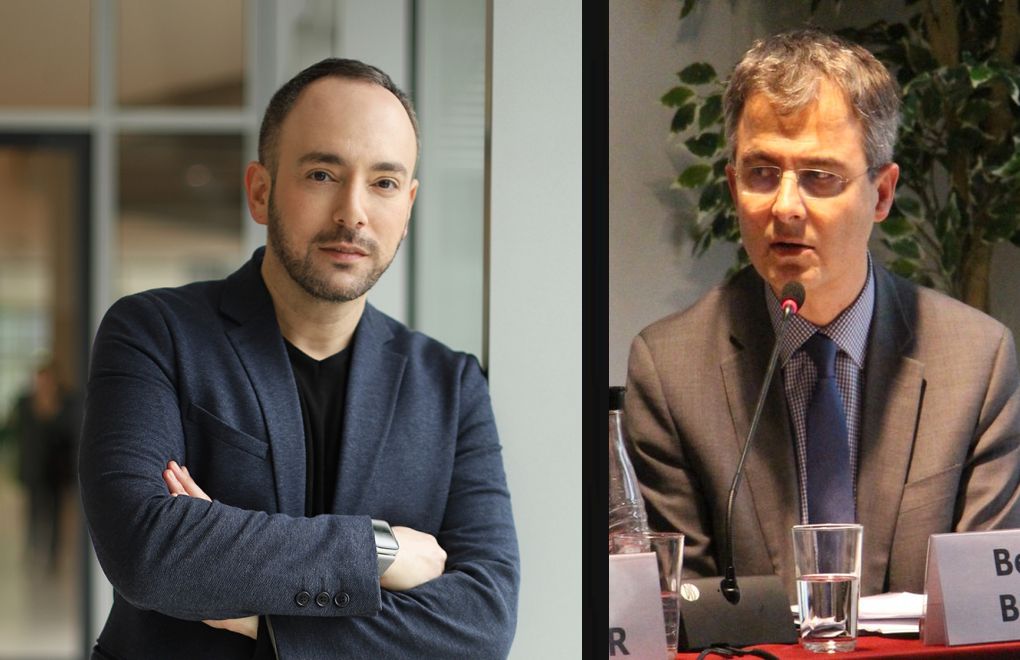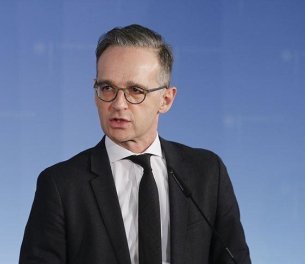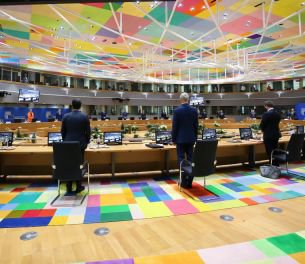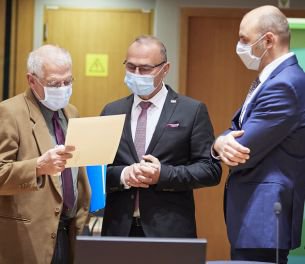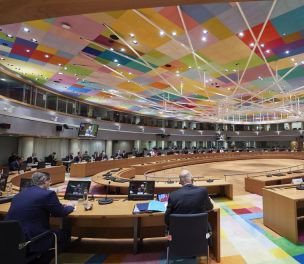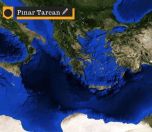Sergey Lagodinsky and Bernard Brunet
Click to read the article in Turkish
Sergey Lagodinsky, a MEP with the Greens/European Free Alliance (EFA) group, tolf bianet that "Turkey has to walk the talk and deliver concrete results in order to regain trust."
On December 10 Human Rights Day, we asked European politicians about the government's recent statements about the "positive agenda" and "European perspective" and the relation of these to human rights.
"Releasing political prisoners would be a good start"
Lagodinsky said statements were not enough and the government needed to take concrete steps.
"We Greens continue to advocate for a European perspective for Turkey in the long-term. We refuse to shut the door in the face of democratic and pro-European Turkish citizens and civil society.
"However, keeping the door open is getting more and more complicated, since a large majority in the EU – across all party lines – has strong doubts about President Erdoğan's political will to end his authoritarian rule, engage in a genuine democratic reform process, start restoring rule of law in Turkey and stop the brutal violation of fundamental rights of Turkish citizens. And I do share these doubts.
"Mere announcements by Turkish authorities won't do the trick anymore to come to a positive agenda with the EU. Turkey has to walk the talk and deliver concrete results in order to regain trust.
"Releasing all political prisoners, among them for example Osman Kavala, Selahattin Demirtaş, Ahmet Altan or Cihan Erdal, would be a good start."
"The deterioration of human rights continued"
EU leaders will meet tomorrow with Turkey on their agenda. In the final declaration of the last leaders' summit held on October 1-2, Turkey was offered a "positive agenda" in exchange for refraining from steps that increase the tensions in the Eastern Mediterranean. Otherwise, sanctions could be applied after December's summit, said the declaration.
In his response to bianet, Bernard Brunet, the head of Turkey Unit at the European Commission Directorate-General (DG) for Neighbourhood and Enlargement Negotiations, pointed out the following article of the October's declaration:
"Provided constructive efforts to stop illegal activities vis-à-vis Greece and Cyprus are sustained, the European Council has agreed to launch a positive political EU-Turkey agenda with a specific emphasis on the modernisation of the Customs Union and trade facilitation, people to people contacts, high level dialogues, continued cooperation on migration issues, in line with the 2016 EU-Turkey Statement.
"The European Council invites its President, in cooperation with the President of the Commission and with the support of the High Representative, to develop a proposal for re-energising the EU-Turkey agenda to this effect."
He also referred to the European Council's Turkey report that was published in October.
"The deterioration of human and fundamental rights continued. Many of the measures introduced during the state of emergency remained in force and continued to have a profound and devastating impact," says the report.
"The legal framework includes general guarantees of respect for human and fundamental rights but the legislation and practice still need to be brought into line with the European Convention on Human Rights (ECHR) and with the European Court of Human Rights
(ECtHR) case-law.
"The lack of institutional independence, lengthy review procedures, the absence of sufficiently individualised criteria, and the absence of a proper means of defence cast serious doubt over the Inquiry Commission on the State of Emergency Measures' ability to provide an effective remedy against dismissals."
Torture and impunity are also mentioned in the report:
"Restrictions imposed on, and surveillance of, the activities of journalists, writers, lawyers, academics, human rights defenders and critical voices on a broad scale have a negative effect on the exercise of these freedoms, and lead to self-censorship
"Credible allegations of torture and ill-treatment continued to be reported. In light of the COVID-19 pandemic, a controversial legislative package provided for the conditional release of up to 90,000 prisoners.
"As of July, 65,000 prisoners had been released. However, it excluded those held in pre-trial detention for alleged terrorism-related offences, including lawyers, journalists, politicians and human rights defenders."
On November 21, President Recep Tayyip Erdoğan said, "We see ourselves in Europe, not anywhere else, we look to build our future with Europe.
"We believe that we do not have any problem with any country or institution that cannot be solved through politics, diplomacy, and dialogue."
Also speaking about a planned judicial reform, he said, "We will find a proper place in the post-pandemic world by improving our judicial infrastructure, strengthening the foundations of our economy, increasing production and employment."
About Sergey LagodinskySergey Lagodinsky is a Member of the European Parliament, Group of the Greens/European Free Alliance. Until June 2019 he was the Head of European Union and North America Division of the Heinrich-Böll-Stiftung. His specialist expertise lies in transatlantic relations, international and constitutional law as well as law and politics of diversity and integration. Sergey Lagodinsky is a regular guest and commentator in numerous media. In his 2014 book "Contexts of Antisemitism," Sergey Lagodinsky explores the relationship between anti-Semitism and freedom of expression in Germany and in international law. Prior to joining the Heinrich Böll Foundation, Sergey Lagodinsky worked as a lawyer for Orrick, Herrington & Sutcliffe LLP. From 2003 to 2008, he served as Program Director, later as Advisor to the Board for the Berlin Office of the American Jewish Committee. In 2008 and 2009 he was a Fellow at the New Responsibility Foundation and in 2010 as a Yale World Fellow in New Haven. Sergey graduated from Humboldt University. He is a graduate of the Law Faculty of the University of Göttingen and Harvard University (Masters in Public Administration). Source: Heinrich Böll Stiftung About Bernard BrunetThe head of Turkey Unit at the European Commission Directorate-General (DG) for Neighbourhood and Enlargement Negotiations Bernard Brunet was a member of the cabinet of Commissioner Füle in charge of enlargement and neighbourhood policy from 2011 until 2014, with particular responsibilities on the European Neighbourhood policy and relations with Southern Mediterranean countries. Between 2002 and 2011, he worked on relations with the Maghreb countries in the European External Action Service and in the External Relations DG of the European Commission, and was posted to the Commission Delegation to Tunisia. Before 2002, he worked in the Commission's department on economic and financial affairs, in particular on economic issues related to enlargement and international financial issues. |
(AS/VK)





